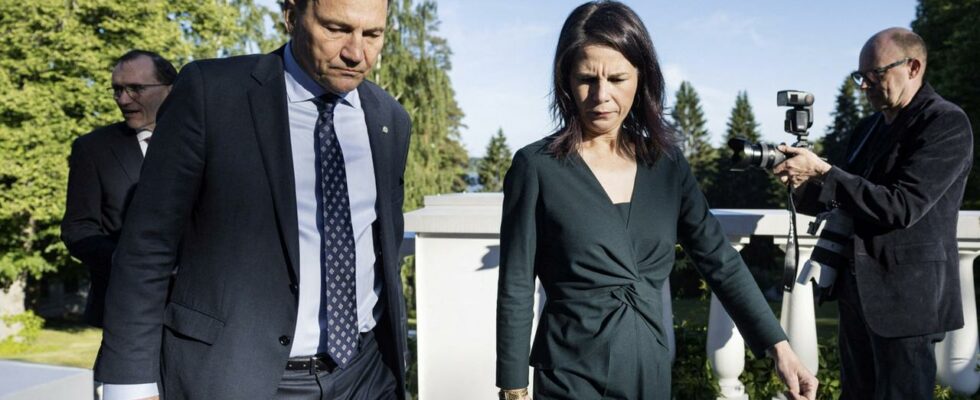Whether it’s GPS interference, disinformation or shifted border markings: provocations are becoming more and more frequent in the Baltic Sea region. The neighboring states see Russia as the perpetrator – and are developing counter-strategies in the Baltic Sea Council.
Sometimes border markings are suddenly missing, sometimes servers are brought to a standstill: sabotage and disinformation campaigns are now the order of the day in the Baltic Sea region, says Federal Foreign Minister Annalena Baerbock.
The foreign ministers, who are meeting in the Finnish city of Porvoo this evening, have no doubt as to who is responsible for the attacks: Russia is deliberately trying to stir up uncertainty and destabilize.
The members of the Baltic Sea Council – Denmark, Estonia, Latvia, Lithuania, Finland, Sweden, Poland, Germany, Norway, Iceland and the European Union – want to counteract this. Defence against hybrid threats is the central theme right from the start.
“Never seen on this scale before”
The seriousness of the situation can be seen from the many incidents that have occurred in recent months. “Perhaps the best example is GPS disruption – as in December last year, when both our mobile phones and the ability to determine a GPS position were affected,” says Hans Liwang, a scientist at the Stockholm School of Defence. “This has affected aviation and civil shipping. An effect that we have never seen on this scale before.”
The Finnish airline Finnair was unable to land in Tartu, Estonia, for several weeks in the spring because of GPS failures. Farmers complained that their tractors could no longer be navigated accurately. In May, the Estonian Foreign Ministry summoned the Russian chargé d’affaires because there were increasing numbers of disruptions and failures.
Moscow wants to test limits
But what does Russia want to achieve with such maneuvers? “One thing is to divide us. To make us feel that we have weak points. To make critical voices louder,” explains Liwang. “The other is that they may also want to put us to the test.”
Moscow also seems to want to test how far it can go in other sensitive areas. At the end of May, Russia removed the border markings with Estonia from the Narva River. Maps with new maritime borders appeared on the Internet.
The Ministry of Defense, says Russian Foreign Ministry spokeswoman Maria Zakharova, quite openly, is calling for a revision of the maritime borders in the Baltic Sea because the coastline and the islands have changed.
“In addition, the border lines in force today were established on the basis of materials from the middle of the last century,” Zakharova said. “They covered, among other things, the territories of the former union republics of the USSR – Latvia and Estonia – which, as you know, does not fit with today’s political and geographical realities.”
Better protection for underwater infrastructure
No one in the Baltic Sea Council believes that all of this is merely of a technical nature, as the spokesperson emphasises. Security policy issues are therefore at the top of the agenda at the two-day meeting. This also includes better protection of underwater infrastructure, data cables, shipping routes and offshore wind farms.
The more pinpricks there are from the Russian side, said Foreign Minister Baerbock, the closer they will be together. The Baltic Sea Council, which has so far attracted little attention as a regional forum, is gaining unexpected political weight due to Russia’s targeted provocations.

